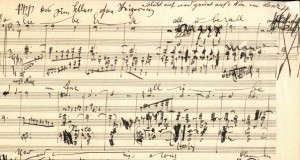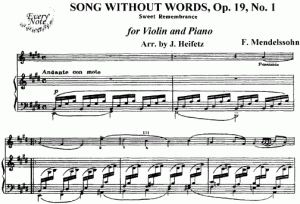Songs of Myself (Part 2)
By Asher Crispe: June 18, 2014: Category Inspirations, Simple Rhythms
 We are continually testing the limits of language. Pushed to the breaking point, our words overflow their outlined ordinary definitions. Meaning dwells within them but it also seeks to transcend by coloring outside of the lines. Metaphor carries us over the threshold into the beyond and when its deformalization of language over takes and subverts conventional usage, prose metamorphoses into poetry.
We are continually testing the limits of language. Pushed to the breaking point, our words overflow their outlined ordinary definitions. Meaning dwells within them but it also seeks to transcend by coloring outside of the lines. Metaphor carries us over the threshold into the beyond and when its deformalization of language over takes and subverts conventional usage, prose metamorphoses into poetry.
Drawing upon the terminology of Kabbalah, there is the lateralization of our mental faculties into a variety right-left generalizations. Dropping into the right side of the brain in top-down fashion, chochmah or intuition technically denotes a level of insight that resists linguist expression as a form of visualization of the whole that hovers over words and letters–the semiotic units that function as containment vessels that attempt to reassemble the original experience piecemeal from symbolic carvings. By contrast, the buildup on the left side of the brain that constitutes binah or comprehension squares our experience with the available tools of construction, namely, the letters of thought as the prototypes of the letters of speech. Immanent to the vehicles that carry them, signification works its creativity from within a bounded rationality. Words will be words with a meaning in and of themselves. Taken too ‘literally’ our use of prose risks becoming the much feared ‘prison house of language.’
Rather than let this rigid dichotomy stand, the Zohar separates the right from the left–chochmah (pre-linguistic intuition) from binah (language based comprehension)–for the sake of ultimately reuniting them. We are cautioned that they are always married (being “two companions which never separate”). Therefore we are enjoined to contemplate a state which could be called chochmah and binah within binah or, intuition and comprehension within comprehension. Intuitive writing or discourse would be relatively poetic compared with fully comprehensible and conventional communicative media which we call prose. Further interinclusions also exist. As with a fractal pattern, our terms are continually re-inscribed: we may detect a semblance of both poetry and prose within prose and poetry and prose within poetry. Thus, the distinction is both maintained and suspended to some degree.
Now all of this is really just a prologue to our conversation about music. Words set to music already have extra-textual effects that push them in the direction of poetry. Song lyrics are most often poetical. Singing those words imbues them with a halo of energy, evasive overtones, and oblique gestures. In the spirit of metaphor, they say more than they say. Nonetheless, some of these words floating in a stream of music can be tied to concrete meaning. They don’t entirely reach the unsayable which resides in the surplus of meaning that bankrupts words. Even as poetry and songs with words are comparable in their attempts to be both in the world of communication and beyond it at the same time, it is songs without words that fully realize what was inexpressible within the confines of linguistics.
Returning once more to the Temple (Beit Hamikdash) as a microcosm of both Jewish, and by extension, universal human spirituality (as all nations had and will have a place in the Temple), we may cite these two types of musical self-expression as recursions of our prose-poetry distinction. Historically it was the Levites whose task in the Temple was to provide the musical accompaniment or entertainment both for us below and for God above. Kabbalistically, the Levites represent the left axis of the powers of the soul and are considered to be an outgrowth of comprehension (binah). Subsequently, we see that they sang songs with words (specifically verses of Psalms). As a result, these musical experiences were conceived in a semi-graspable way.
In his commentary of the Zohar (Biurei Hazohar p.268), the Mittler Rebbe (Rabbi Dovber of Lubavitch 1772-1827) offers an analysis of the less well known songs of the Priests (Kohanim). Overall, the spiritual service of the Priests (including the aspect of the Priests within everyone of us) was accomplished in silence. Far from being non-expressive, this particular form of silence was intended to manifest the plethora of meaning that exceeds the grasp of language. Themselves an embodiment of the right axis of the powers of the soul, they represent the counterpoint to the Levites and, as such, assert themselves as an outgrowth of pre-linguistic intuition. So the question remains, “how can I convey the virtues of silence within the context of music?” The answer lies in the ineffable quality of songs with words. They speak volumes without ever being confined to a specific content. Definitions are not nailed down. Pure voice without the accompaniment of ‘instrumental’ reason or language communicates the transcendent itself. To say that these songs without words come from a higher source would be tantamount to declaring their abstraction. By contrast, songs with words coalesce. And while they are not exactly concrete, they have become a harden wax.
What do we make of all this? As much as we require a place for language-based thought alongside pure intuition that envisions the world beyond linguistic representation, similarly we are obliged to be at home (the Temple is ultimately a home) with both songs with and without words. We must interiorize the Levite’s and the Priests’ songs as two of the dominate musical methods of tapping into the depths of the soul. When combined, these two forms of musical expression establish what is referred to in Kabbalah as a “run and return” dynamic.
 The “run” is characterized by fleeting experience that evades one’s conceptual grasp and resists being squeezed into words. As such, relating to our songs without words paints the song of myself as the infinition of my being that alludes language based representation. I have no words for you as they seem to me to have all become void. Now that they appear empty, who knows how to call back the evacuated signifying soul to its verbal body? But “returns are easy” (at least that is what is promised in online sales). There is a counter force, a gravity that signals that it is time to for the disembodied soul of meaning to cooperate with language via a reverse merger into a public ‘corporation.’ The return replaces enlightening experiences in ‘literal’ body. Language is re-energized after every “out-of-body” experience.
The “run” is characterized by fleeting experience that evades one’s conceptual grasp and resists being squeezed into words. As such, relating to our songs without words paints the song of myself as the infinition of my being that alludes language based representation. I have no words for you as they seem to me to have all become void. Now that they appear empty, who knows how to call back the evacuated signifying soul to its verbal body? But “returns are easy” (at least that is what is promised in online sales). There is a counter force, a gravity that signals that it is time to for the disembodied soul of meaning to cooperate with language via a reverse merger into a public ‘corporation.’ The return replaces enlightening experiences in ‘literal’ body. Language is re-energized after every “out-of-body” experience.
To put it differently, every song with words comes into its own after venturing into a wordless beyond. Today, we salute this run and return pulsation every time we alternate between the inarticulate sounds of our simple voice humming, groaning, screaming, weeping, laughing and uttering in monosyllables what passes through language beyond language–the “overstated”–only to fall down to earth and plant new words in the soil we brought back from space. So when we sing along with the soul and we cannot understand the lyrics, we substitute them for pliable tones until we feel we know the words and recognize enough of ourselves in them.
Next up in Part Three, we will dive into the ten Hebrew synonyms for music and explore how they parallel the ten powers of the soul.
http://www.interinclusion.org/inspirations/songs-of-myself-part-3/
http://www.interinclusion.org/inspirations/songs-of-myself-part-1/
Songs of Myself (Part 2),















;)
;)
;)
;)
;)
;)
;)
;)
;)
;)
